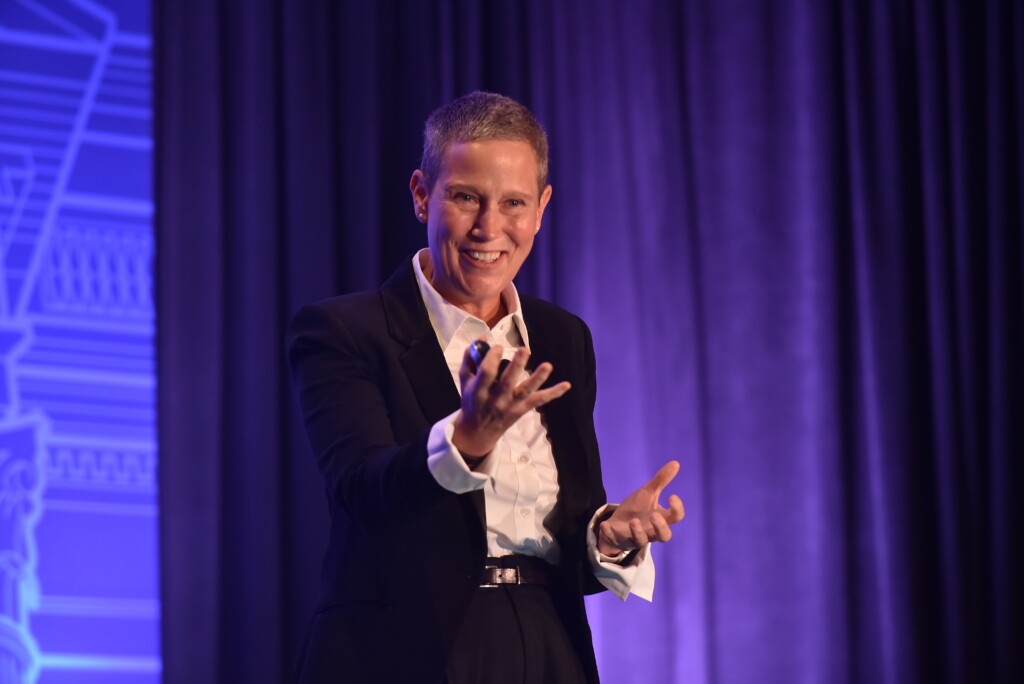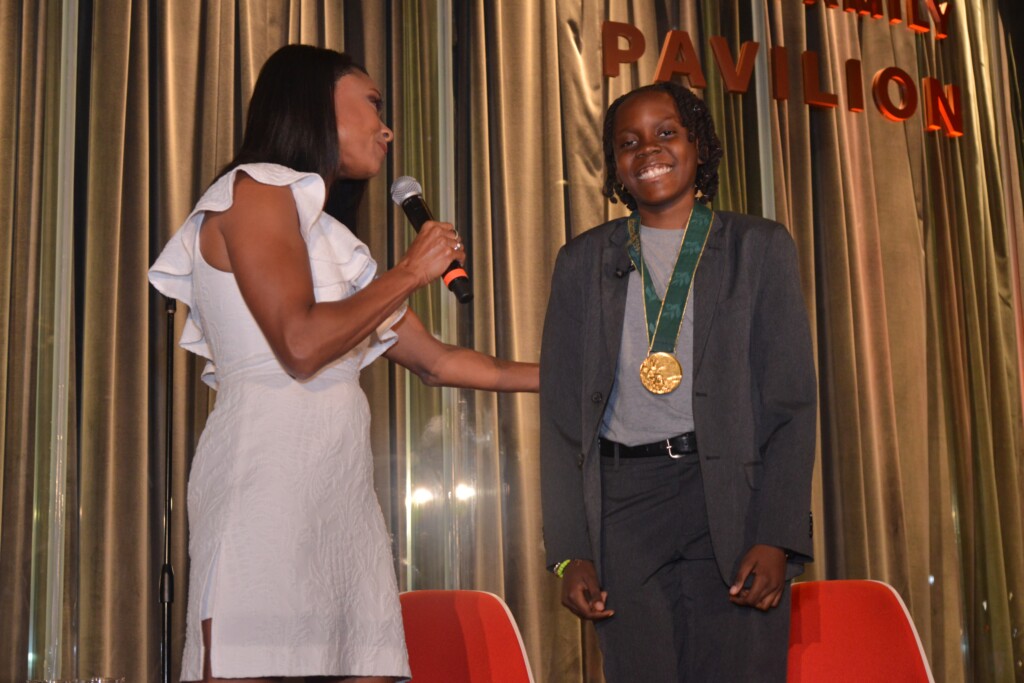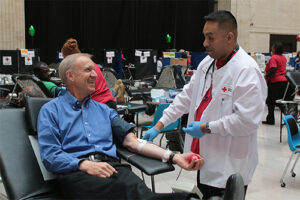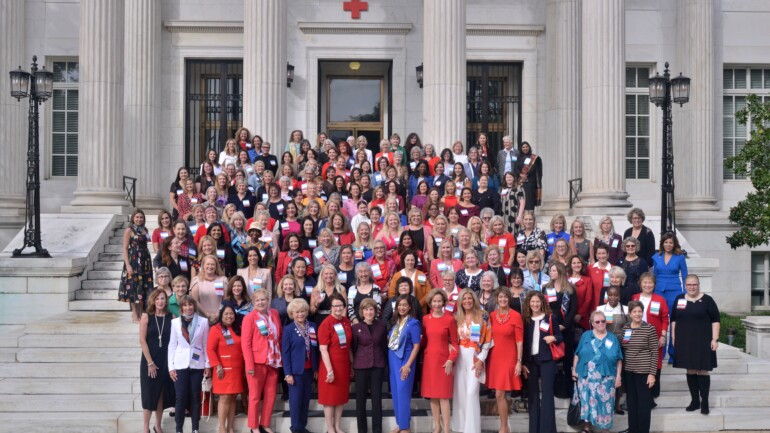Every two seconds, someone in the U.S. needs blood. The American Red Cross must collect enough blood every day to meet the needs of accident and burn victims; heart surgery and organ transplant patients; and those receiving treatment for leukemia, cancer or sickle cell disease — the most common genetic blood disorder in the U.S.
The Sickle Cell Initiative
The American Red Cross launched the Sickle Cell Initiative to help people suffering from sickle cell disease receive closely matched blood units during regular transfusions — an essential treatment. This disease affects approximately 100,000 people, the majority of whom are of African, Latin and Mediterranean descent, and may require some of its sufferers to have as many as 100 blood transfusions annually throughout their lives. Transfusions help prevent complications, such as organ and tissue damage, acute anemia, crippling pain, life-threatening strokes and death. In fact, the average life expectancy for patients living with the most severe form of sickle cell disease is 30 years shorter than that of people without the disease.
Another central aspect of the Sickle Cell Initiative is its mission to grow the number of blood donors who are Black and multiracial by the end of 2027, in an effort to secure compatible blood transfusion matches for people living with sickle cell disease.

The Power of Collective Giving
This month, our Founder Susan B. Noyes and her daughter-in-law Noelle Sayles, joined members of the American Red Cross Tiffany Circle, a community of women leaders who advance the American Red Cross mission, for the Tiffany Circle Summit. Together, the women were inspired to invest almost $1.3 million in support for the vital Sickle Cell Initiative, as well as purchasing 18 Power Red Machines — including one located in Chicago at the R. Scott Falk Family Blood Donation Center. Power red cell donations are important for sickle cell patients because they provide a concentrated supply of healthy red blood cells, helping to alleviate symptoms and complications associated with sickle cell disease.

Over the course of the two-day event — held at the National Museum of African American History and Culture — members heard from a variety of speaker’s including Dominique Dawes, three-time Olympian and Olympic Gold Medalist, who spoke to the power of a collective who support one common goal. She was joined by Vesha Jamison and her son Dreylan (featured above) who spoke about their family’s experience with sickle cell disease and the resiliency and support families need from the community to ensure loved ones are getting the care they need to lead full lives.
“Dreylan described his frequent extremely painful sickle cell attacks as feeling like his body is being shot all over,” Noyes empathized. “Sadly, very few hospitals are set up to quickly recognize and treat patients suffering from one of these horrific attacks either. Not only do we need to collect more blood, we need to improve our society’s response to sickle cell disease too.” She continued, “I’m proud that the Tiffany Circle now champions this cause and am honored to join Kim Falk to raise additional funds to help.”

“My heart strings have always been tugged by the challenges faced by women and children — and I feel tremendous compassion for the mothers whose children live with this painful disease. Although I am a long-time blood and platelet donor, I am not a match for patients with sickle cell disease, when they require blood transfusions. Supporting the Sickle Cell Initiative, which addresses the critical health disparities faced by this community, is one way in which I can make a difference and help the American Red Cross alleviate suffering,” said Kathy Flynn, Tiffany Circle Member and Volunteer.
As the largest single blood collection organization in the U.S., the Red Cross is uniquely positioned and staunchly dedicated to fulfilling the blood product needs of those facing medical emergencies, like sickle cell disease. This year alone, the Red Cross will spend nearly $12 million to support our sickle cell work — worthwhile investments to ensure children like Dreylan and countless others have the blood products they need to keep battling.
How You Can Make a Difference
- Donate Blood: Diversifying the blood donor pool is critical to ensure the availability of proper blood matches. Schedule your next appointment.
- Financial Support: Your monetary contributions help get lifesaving blood to patients when and where they need it. Gifts will be matched dollar-for-dollar up to $100,000 by Kimberly Falk and the Make It Better Foundation. Donate today.
- Save the date! The Illinois Tiffany Circle is the lead sponsor of the largest blood drive nationwide — the 10th annual ABC7 Great Chicago Blood Drive — held January 17-18, 2024. Over the course of two days and in several locations, the Red Cross is collecting lifesaving blood and hopes to exceed 2,200 collections!
 Addressing a Health Disparity
Addressing a Health Disparity
Sickle cell disease is an enduring and often invisible condition associated with health and resource disparities. Despite the discovery of sickle cell disease more than a century ago, newborn screening for the sickle cell trait was not widely performed until 2006 in the U.S., and there have been fewer health resources available to help those suffering from the disease compared to other debilitating diseases. With frequent transfusions comes the risk of developing antibodies to blood, especially when donor and recipient are not closely matched. Without closely matched blood, patients living with sickle cell disease have a higher risk of developing life-threatening allergic reactions and disease-related complications.
Additional Ways To Help
Host a Blood Drive: The Red Cross holds at least 500 blood drives a day to meet demands. Host a blood drive in your community.
Host a Virtual Blood Drive: Looking to engage people across the country with this cause? Host a virtual blood drive today.
Learn More: Why are blood donations so important for patients with sickle cell disease? Visit the Red Cross online for more answers.

